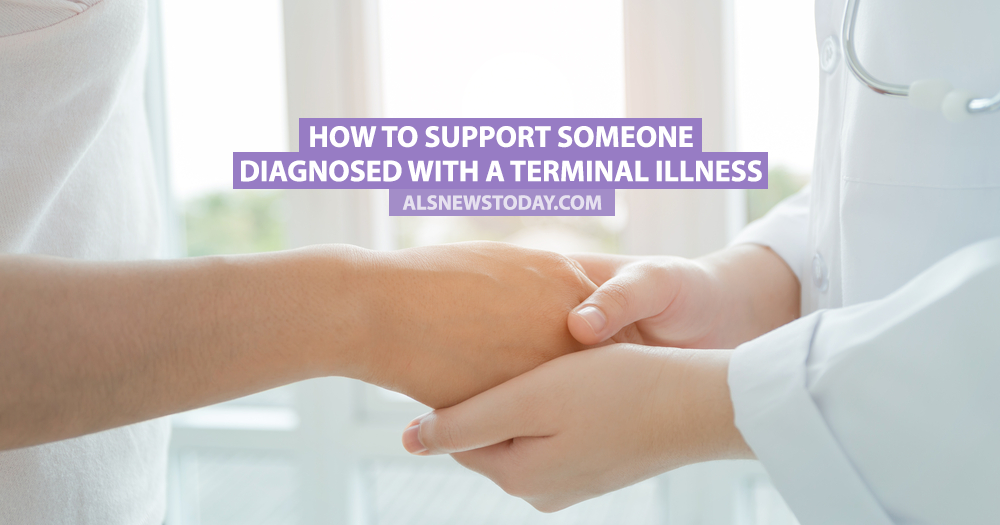How to Support Someone Diagnosed With a Terminal Illness

It’s devastating when a friend or family member is diagnosed with a terminal illness. You want to reach out to help, but you’re often unsure how to handle the situation and what to say—fearful of saying the wrong thing. We’ve compiled a list of ways to help support your loved through this difficult time with help from prevention.com.
Try to Continue With Normal Routines
Trying to carry on with normal life for as long as possible is very important. Include your loved one in activities as you would normally, talk about the same routine things you’ve always chatted about, encourage them to continue with hobbies and pastimes they enjoy.
Be Mindful of Whether They Want Others to Know
Some people are extremely private when it comes to their health, whereas others may be very open and honest with everyone they meet. Follow their lead and only discuss their illness with other people if you feel it’s appropriate and in a situation they would approve of.
Discover seven facts about ALS you might find interesting.
Ask Important Questions About Their Future
There will be difficult but important questions to ask about your loved one’s continued care and their last wishes. Bear in mind that they may change their mind about treatment or care choices down the line so you need to establish throughout if they are comfortable with the decisions they’ve made.
Become a Good Listener
Your loved one will be going through a rollercoaster of emotions and will likely need a sounding board. Try to listen without offering your own opinion (unless it’s specifically asked for) and allow them the time and space to work through their feelings and come to terms with their diagnosis and what lies ahead.
Help Them Create a Wish List or Bucket List
Ask your loved one if they would like to create a bucket list of things to do and help them to achieve some of the things on the list.
Learn more about 11 common symptoms and effects of motor neurone disease.
Get Other Family Members Involved
Taking care of a loved one who is terminally ill shouldn’t be the sole responsibility of one person. Enlist the help of other family members and close friends. Tap into people’s expertise to help with legal matters, insurance details, care routines, financial arrangements, etc.
Don’t Be in Denial
Refusing to accept a situation or pretending that everything will be OK is not a healthy way to move forward for anyone. Everyone needs to face this with an honest and united front, sharing support and not offering any false hope.
Help Maintain Dignity
Terminal illnesses can rob people of their basic functions. It will often be difficult for your loved one to ask for help out of embarrassment or fear of being a burden. Tackling this takes tact and diplomacy to ensure their dignity is maintained as much as possible. You’ll also need to respect their privacy. Don’t talk to them as though they’re a child and don’t talk about them while they’re in the same room.
Discover seven facts about amyotrophic lateral sclerosis you might find interesting.
Don’t Assume They Won’t Want to See You
Don’t stay away for fear of intruding or crowding your loved one, fearing that they won’t want to see you. They will be glad to have the support and company, particularly near the end.
Reach Out and Touch Them
The human touch is very healing and comforting and reaching out to hold someone’s hand or giving them a hug is a great way to make someone feel loved and supported. Combing or brushing people’s hair, moisturizing their hands and arms or feet, or gently rubbing their back will help reassure them and help them relax.
Laugh With Them
Laughter is fantastic medicine and helps to lift the gloom. Watch funny films and TV programs together, share funny family memories, tell silly jokes and create lasting memories.
Read why veterans are more likely to develop ALS.
ALS News Today is strictly a news and information website about the disease. It does not provide medical advice, diagnosis or treatment. This content is not intended to be a substitute for professional medical advice, diagnosis, or treatment. Always seek the advice of your physician or another qualified health provider with any questions you may have regarding a medical condition. Never disregard professional medical advice or delay in seeking it because of something you have read on this website.






